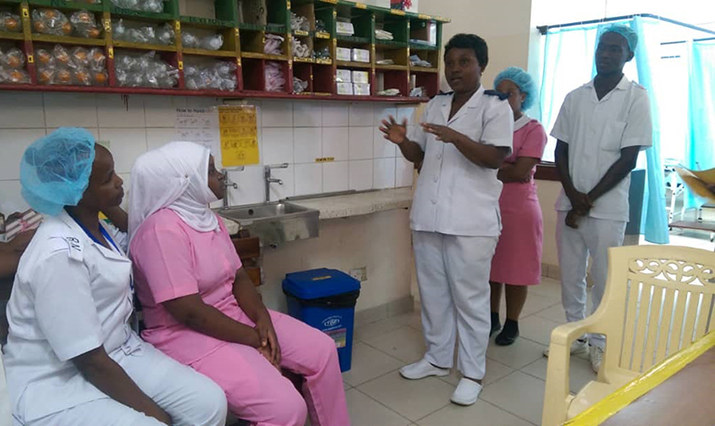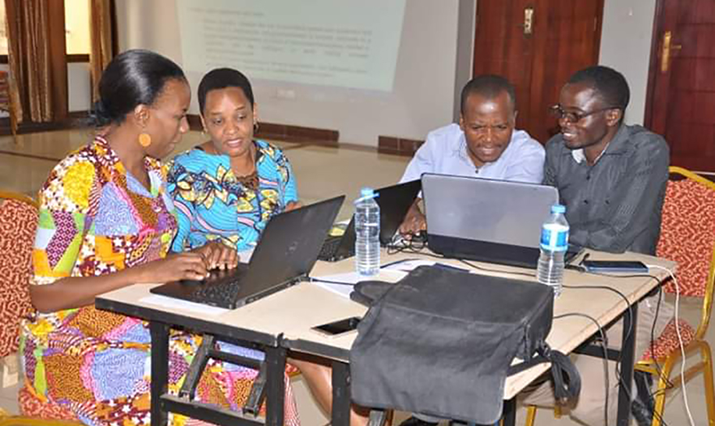Helping Health Care Workers Protect Patients-and Themselves-from Infection
Helping Health Care Workers Protect Patients-and Themselves-from Infection
By Doris Lutkam, MD, MPH

Preventing and controlling the spread of infectious diseases is key to protecting the health of both patients and health care workers (HCWs). This is an urgent need in Tanzania, and not only because of the threat of COVID-19, but also to make the country vigilant about stopping the spread of HIV, tuberculosis, and antimicrobial-resistant infections. From a 2011 WHO meta-analysis, 15 in 100 people who receive health care services in Tanzania will acquire an infection while doing so.
Tanzania already has infection prevention and control (IPC) guidelines and standards for HCWs. However, there is still poor adherence to them because of inadequate knowledge and skills among HCWs on IPC basics; shortages of IPC supplies, including personal protective equipment; and inadequate supportive supervision.
For example, HCWs often fail to comply with hand-washing protocols because they lack an adequate supply of clean water, liquid soap, or elbow-operated dispensers. In several facilities, linens are not cleaned per standard operating procedures and are stained. Hospitals lack the equipment to transfer both clean and dirty linens and to properly disinfect them, both of which make HCWs susceptible to infections. Meanwhile, the country already has an HCW shortage, running at only 44% of its required staffing capacity.
I am a medical doctor and public health specialist with over 15 years of experience working to improve the health of Tanzanians. I’ve seen the devastation health care-acquired infections (HIAs) can bring, such as a burst abdomen at a surgical site. Currently, I am working as an MTaPS senior technical advisor overseeing the IPC component of the program, building the capacity of frontline HCWs through trainings and mentorship on current IPC practices. So far, we have managed to impart IPC knowledge and skills to 350 HCWs so they can protect themselves and patients from getting HIAs. We also educate the community, especially caregivers, on how to protect themselves with good hand hygiene and housekeeping. The trained HCWs have acknowledged the life-saving knowledge and skills they received during mentorship, things like practical skills on how to correctly prepare chlorine solution for disinfection.

In addition, MTaPS has revised the IPC curriculum to include the latest WHO recommendations, so that trainers demonstrate current practices to new HCWs before they even begin their jobs. During one training session, an IPC trainer thanked MTaPS for providing opportunities to orient them on the new IPC guidelines, saying that tutors were often overlooked when it came to updating knowledge and skills, particularly when new guidelines were issued. “Our students learn slightly old practices, so they need to spend time to articulate the practices while they are on the job,” said one trainer. MTaPS is also working with the government to develop IPC e-learning courses, enabling trainees to have convenient access to modern training techniques.
I’m confident that our efforts to strengthen IPC programs in Tanzania will help protect these service providers and patients from health care-acquired infections and protect their communities from infectious disease outbreaks, including the current COVID-19 pandemic.